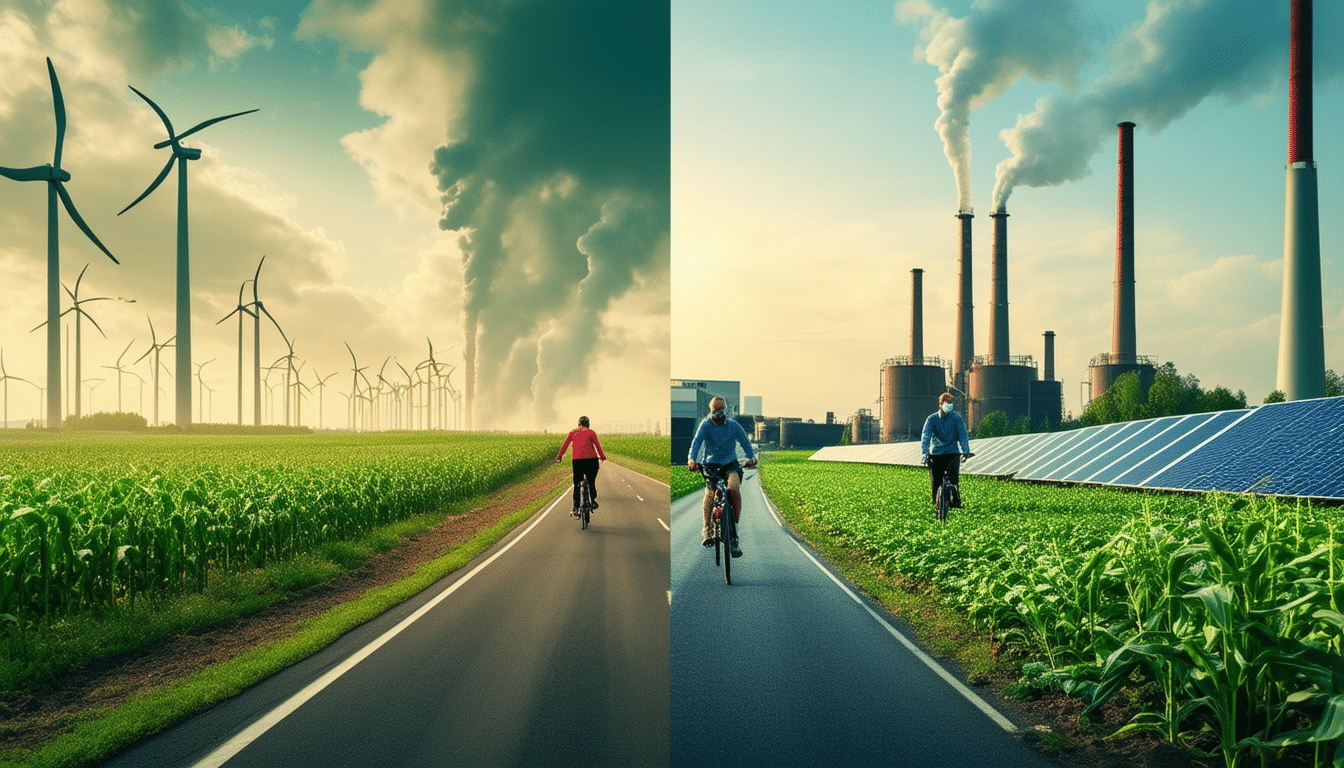Advantages of using biofuels instead of fossil fuels

The use of biofuels instead of fossil fuels is presented as an innovative and necessary option for a more sustainable future. These renewable fuels, derived from inexhaustible raw materials, not only offer a more ecological alternative but also contribute to the reduction of pollutant emissions and greenhouse gases. The advantages of biofuels are diverse, ranging from their positive impact on the environment to their potential for reducing costs in pollution management. As the world faces environmental challenges, the transition to the use of biofuels becomes increasingly urgent and beneficial.
The use of biofuels has become increasingly relevant in the search for sustainable alternatives to fossil fuels. This article explores the main advantages offered by biofuels, highlighting their capacity to reduce pollutant emissions, their contribution to sustainable development, and their economic potential. By opting for biofuels, not only is a cleaner future supported, but a renewable energy system that benefits society as a whole is also promoted.
Reduced environmental impact
One of the most significant advantages of using biofuels is their lower environmental impact. Unlike fossil fuels, biofuels generate fewer greenhouse gas emissions and other pollutants. This translates to cleaner air and a lower risk of contributing to global warming. For example, biodiesel produces up to 78% less carbon dioxide (CO₂) compared to conventional diesel.
Inexhaustible resources
The raw material for the production of biofuels is essentially renewable. This is because they are obtained from biological sources, such as agricultural waste, vegetable oils, and organic matter. Unlike fossil fuels, which are limited and tend to be depleted, biofuels can be produced sustainably and continuously, ensuring a long-term energy alternative.
Economic benefits
The use of biofuels is not only beneficial for the environment but can also be economically advantageous. The production of biofuels tends to have lower costs than the extraction and refinement of oil. Additionally, using biofuels decreases expenses related to pollution control and engine maintenance, which can result in significant savings for businesses and end users.
Sustainability perspectives
Biofuels contribute to sustainability at various levels. Their production can be integrated into waste management systems, transforming products that would otherwise be discarded into valuable energy sources. This not only reduces the amount of waste generated but also promotes more responsible agricultural and industrial practices. To learn more about sustainable practices, resources on sustainable practices can be consulted.
Energy independence
The use of biofuels can increase a country’s energy independence. By reducing dependence on imported fossil fuels, local economies are strengthened, and the development of indigenous energy technologies is promoted. On the other hand, this also contributes to energy security, decreasing vulnerability to price fluctuations in the international market.
Innovation and technological development
The growing demand for biofuels has driven technological innovation in this sector. New methodologies and emerging technologies are being developed to improve production efficiency and the performance of biofuels. This includes third and fourth generation biofuels, which promise to be even more efficient and sustainable. To explore more about the strategies of companies in this area, you can visit the link about business strategies.
Conclusion
In summary, the use of biofuels instead of fossil fuels brings a series of significant advantages that range from reducing environmental impact to economic benefits and energy independence. The transition to sustainable forms of energy is crucial for building a healthier and more prosperous future. For more information on the impact of fuel economy, you can check how fuel economy affects your budget.
Biofuels stand out as a more sustainable option compared to fossil fuels. These renewable fuels are obtained from organic materials, meaning their energy source is inexhaustible and, in addition, they contribute to the reduction of environmental pollution.
One of the main advantages of biofuels is that they emit fewer gases during their combustion. This is because the plant used for their production absorbs CO₂ from the atmosphere during its growth, which partly offsets the emissions produced when using them. Thus, a positive impact on climate change mitigation is achieved.
Another significant advantage is that using biofuels can generate economic savings. The raw material used for their production is often cheaper compared to oil, which can translate into cost reductions in the long run. This is especially important in a context where oil prices are increasingly volatile and directly affect the global economy.
Moreover, the use of biofuels can help to increase the energy sovereignty of countries. By reducing dependence on imported fossil fuels, countries can develop their own energy sources and promote the local economy through the agricultural production of these raw materials.
Finally, biofuels represent an innovative alternative for transportation, improving engine performance and reducing the overall cost of engine pollution. In summary, choosing biofuels not only reflects a commitment to the environment but also translates into economic and energy benefits in the long term.





